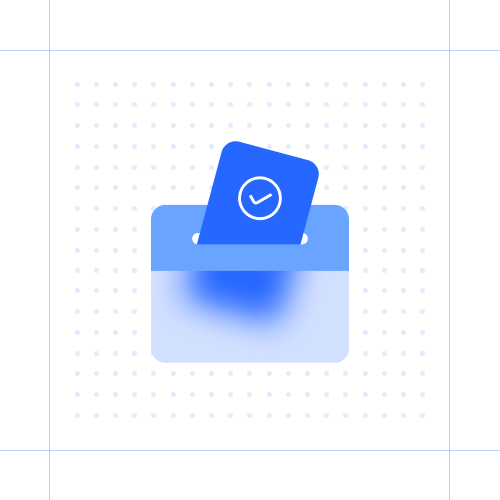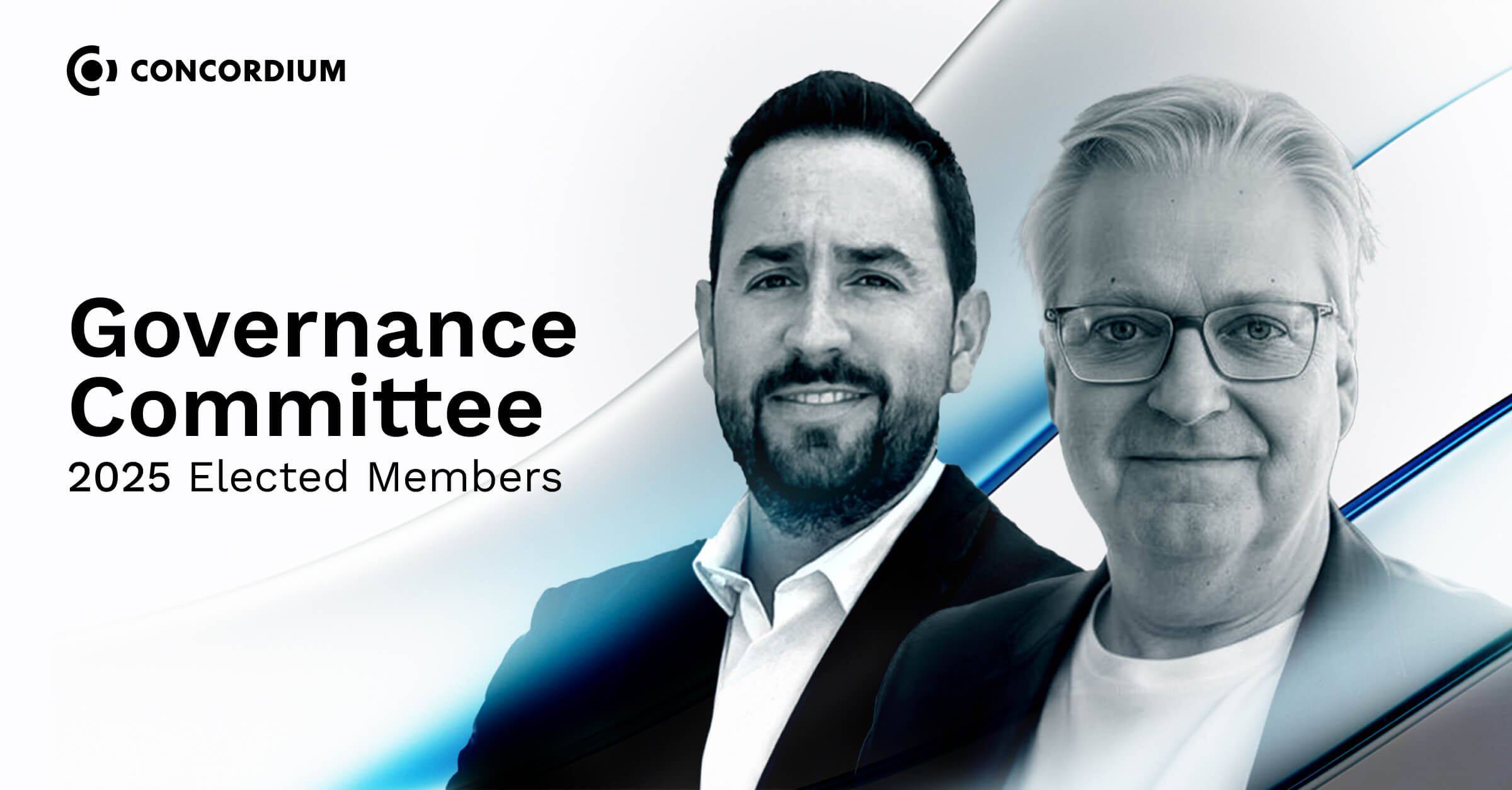A Path to Decentralization
Through a carefully designed governance structure, Concordium is steadily evolving towards a leading, open-source, permissionless and decentralized blockchain — one that balances community voice, expert guidance and transparent decision-making.

The Governance Trifecta
Governance on Concordium is transitioning from being foundation-led to community-driven, and is shared by three key bodies — The Concordium Foundation, The Governnance Committee and CCD Holders.
Learn MoreAs a Swiss-based non-profit, the Foundation is supervised by the Swiss authorities and ensures Concordium evolves in accordance with its founding Public Deed. The Foundation Board plays an executive and advisory role, setting strategic guidelines for the blockchain’s technical and commercial development.
The Governance Committee’s main task is to advise the Foundation and the Executive Management Group on protocol updates, tokenomics, and governance decentralization with the stability of the protocol, widespread adoption and the inclusion of all partipating parties in mind.
Since 2024 Concordium’s governance model supports community participation. CCD holders can actively participate in Concordium’s governance by nominating and electing GC members as well as voting on various decisions and proposing their own changes.
Governance in Motion
Concordium’s roadmap toward full decentralization is structured in three phases, each phase adding new committee seats through community voting as well as broadening the voting scope to allow the community to play a central role in shaping Concordium’s future.
Roadmap Phases
The Concordium Foundation appointed a 5-member Governance Committee to manage protocol updates, tokenomic parameters, and the design, both conceptually and technically, of the governance framework. This phase ended with the first community on-chain election in June 2024, where CCD holders appointed 2 new GC members, expanding the committee to 7— marking the start of community participation in governance.
CCD holders will continue to gain influence by electing 2 more governance committee members in 2025, expanding it to 9, 4 of which will be community-appointed. CCD holders will also be able to vote on technical proposals.
In 2026, 3 foundation-appointed seats will be up for re-election, raising the total community-elected seats to 7. Proposal submission is also expected to be enabled to allow community-led initiatives.
Following the June 2027 elections, all GC members will be elected by CCD holders—marking the beginning of a fully community-led governance. From this point, CCD holders can propose changes to the governance framework and play an expanded role in shaping the future of Concordium. The GC’s mandate will continue to evolve based on the lessons learned in earlier phases.

The Governance Committee
The Concordium Governance Committee is a group of independent experts guiding the protocol’s development with transparency, accountability, and a focus on decentralization.

Concordium Group CFO
CFO at Concordium, Jørgen brings vast experience as a C-level executive and a strong track record in driving financial excellence and business growth.

Concordium Group CTO
CTO at Concordium, Peter is an accomplished technology leader with extensive experience in blockchain innovation and IT.

Member of the Concordium Advisory Board
With 40+ years in tech leadership, Michael helps guide Concordium’s work on decentralized, transformative digital solutions.

Special Advisor to Concordium’s Commercial Team
A leader in cryptography, Torben supports Concordium with expertise from decades in secure digital systems for finance and government.

Senior Cryptography Researcher in Concordium’s Science
Christopher has over 15 years of research experience in cryptography, contributing to academia and industry through impactful publications and international conferences.

Investor
Andreas is a blockchain-focused investor since 2013, specializing in Web3 infrastructure and DeFi projects, and supporting the growth of emerging decentralized technologies.

Staking
Mikael supports Concordium’s staking initiatives, combining technical insight with community engagement to promote secure and inclusive network participation.

Web3 Founder
Borja is a Web3 strategist and founder focused on building blockchain applications like AEDX.org and 5TARS.io, advancing real-world adoption of decentralized technologies.

Web3 Founder
Niels is a blockchain leader and Provenance Tags co-founder, specializing in enterprise traceability and compliance, and driving adoption of privacy-first infrastructure on Concordium.
Foundation Board
At the heart of Concordium is a team of visionaries dedicated to building a secure, trustworthy digital future.
Secure On-Chain Voting
Your privacy is protected. The voting protocol provides privacy and end-to-end verifiability via zero-knowledge proof technology. Every vote is kept secret at all times, meaning no one can know how individuals voted. In addition, anyone, including third-party auditors, can verify the integrity of the election without compromising voter anonymity.

Frequently Asked Questions
Everything you need to know about voting on Concordium.
Who can vote?

Any CCD account holder can vote. Your vote’s weight is based on your CCD balance average CCD in the months before the vote. The exact date for which the average is computed are published for each election or proposal.
What counts toward my voting weight?

Included: CCD held in regular or staked wallets (validators / delegators)
Excluded:
Shielded CCD
- CCD locked in smart contracts
- CCD in custody (e.g., CEXs)
Tips: Move your CCD to a personal wallet to ensure you can vote with full weight.
Can I vote from multiple accounts?

Yes! Voting from all your accounts increases your total voting power. Just make sure you cast your votes from each one individually.
What if I vote multiple times fropm the same account?

Only the last vote from each account counts.
What voting method is used for elections?

Concordium uses approval voting. You can vote for as many candidates as you like. Each selected candidate receives the full weight of your vote.
Example: If your account has 3000 CCD and you vote for 2 candidates, each get 3000 votes, not 1500 each.
How are election winners decided?

The candidates with the most weighted votes win. If there is a tie, a fair coin is flipped.
How can I vote using the dApp?

You can use the Concordium Voting dApp with the following wallets: Concordium
Wallet for Web, CryptoX Concordium Wallet.
Can I vote using the Desktop Wallet?

Not directly. You’ll need to delegate your vote to an account in a supported wallet:
- Create a new account in a supported wallet
- Transfer a small amount (e.g., 1 micro-CCD) from your desktop account
- Add a the correct memo for each election or proposal
- Vote from the new account using the dApp
Can I vote using the Concordium Client?

Not directly. You’ll need to delegate your vote to an account in a supported wallet.
See documentation for more info.How does vote delegation work?

You can delegate your vote but only one deep. For example, if account A delegates to B, and B delegates to C:
- A’s weight stays with B
- C gets only B’s original weight (not A’s)
Only the last delegation from an account is counted.
How is my vote kept private?

Concordium uses a secure election protocol with zero-knowledge proofs (ZKPs). This ensures that your vote remains secret and the election process is fully verifiable without revealing how anyone voted. Learn more.
Where can I find step-by-step voting instructions?

Detailed instructions are available in the Voting Documentation.
This ensures that your vote remains secret and the election process is fully verifiable without revealing how anyone voted.
Latest on Governance
The latest news, technologies, and resources on governance


.jpg)
.jpg)